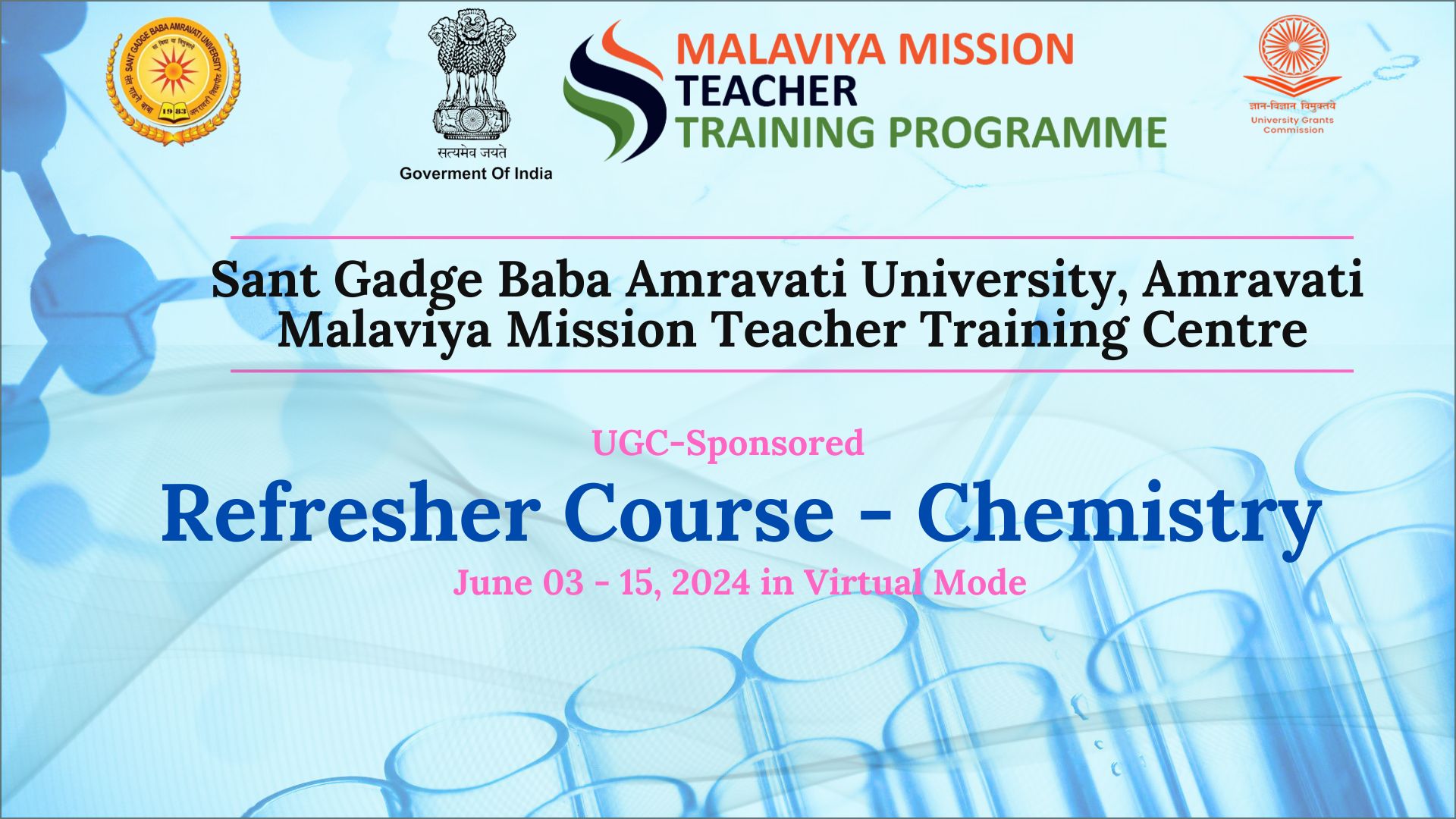
The UGC-sponsored Refresher Course in Chemistry, organised by the Malaviya Mission Teacher Training Centre at Sant Gadge Baba Amravati University, aims to provide an in-depth and contemporary understanding of chemistry aligned with the National Education Policy-2020 goals. This virtual course is designed for faculty members seeking to enhance their chemistry knowledge, skills, and pedagogical approaches. The course includes live sessions, hands-on assignments, case studies, and assessments, fostering a comprehensive and engaging learning environment.
Objectives
- Align with NEP Goals: To integrate the principles of the National Education Policy in the teaching and learning of chemistry, promoting a holistic and interdisciplinary approach.
- Knowledge Enhancement: To update participants on the latest advancements and research in various branches of chemistry.
- Skill Development: To provide practical experience with modern experimental techniques, computational tools, and data analysis in chemistry.
- Innovative Pedagogy: To introduce innovative teaching methodologies and strategies to improve the teaching-learning process in chemistry.
- Professional Networking: To facilitate networking and collaboration among peers and experts in the field, encouraging professional growth and interdisciplinary research.
Learning Outcomes
By the end of the course, participants will be able to:
- Advanced Knowledge: Demonstrate an advanced understanding of contemporary topics and cutting-edge research in chemistry, aligned with NEP objectives.
- Practical Skills: Apply modern experimental techniques and computational tools to address complex chemical problems.
- Innovative Teaching: Implement innovative teaching strategies and methodologies in their educational practices, enhancing student engagement and learning outcomes.
- Critical Analysis: Analyze and critically evaluate case studies, research papers, and real-world chemical problems, developing solutions and insights.
- Interdisciplinary Integration: Develop and execute interdisciplinary research proposals, fostering collaboration with peers and experts from various scientific backgrounds.
- Professional Competency: Exhibit enhanced professional skills, including scientific communication, project management, and ethical practices in research and teaching, in line with NEP standards.
Course Structure
- Live Sessions: Interactive lectures and discussions with leading experts, providing real-time engagement and Q&A opportunities to delve deep into advanced chemical concepts.
- Hands-On Assignments: Practical exercises and projects designed to apply theoretical knowledge to real-world scenarios, enhancing problem-solving skills.
- Case Studies: In-depth analysis of selected case studies to understand the application of chemical principles in various contexts, fosters critical thinking and practical application.
- Assessments: Regular assessments, including quizzes, assignments, and a final project, evaluate participants' understanding and application of course material.
This structured approach ensures a comprehensive learning experience, equipping participants with the necessary tools and knowledge to excel in their professional and academic endeavors in the field of chemistry, in line with the transformative goals of the National Education Policy.
- Course Coordinator: Jagruti Barabde